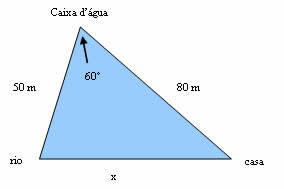You've probably heard of the use of Botox, right?
Botox® is the trade name given to botulinum toxin, produced by the bacteria Clostridium botulinum. This substance is capable of reducing or eliminating muscle contractions and, for this reason, it can be used in treatment of blepharospasms, strabismus and cervical dystonias, or even to prevent wrinkles and marks of expression.
Bacteria can also be used in the production of therapeutic drugs, such as antibiotics (Tyrothricin, Bacitracin, Rifamycin, Neomycin, among others), vitamins, growth hormone and insulin; and in the manufacture of certain enzymes and alcohols, such as methanol and ethanol.
Mainly due to the impacts caused by human activities, these prokaryotes have also been widely considered with regard to environmental quality.
In agriculture, for example, the replacement of herbicides by species that play the role of biological controllers, such as the Bacillus thuringiensis, whose protein crystals it releases are capable of controlling populations of larvae, caterpillars, borers, flies, mosquitoes and husks. Some specimens are also able to act in degradation processes not only of organic waste, but also of herbicides, pesticides, oil, PCBs, DDT, plastics, detergents, mercury, nitrites, selenium, arsenic and uranium: major environmental polluters.
Bacteria are also important in our diet. Species like the Streptococcus thermophilus, S. lactis and S. cremoris; Lactobacilli bulgaricus, L. I got married, L. acidophillusand L. yogurtii; and some of the genera Acetobacter, Corynebacterium and Acetobacter; they are responsible for the existence of vinegar, glutamic acid, sauerkraut, chocolate, bread, wine, fermented beverages, soy sauce and certain dairy products.
Given this information, can you imagine our daily lives without bacteria?
By Mariana Araguaia
Graduated in Biology
Source: Brazil School - https://brasilescola.uol.com.br/biologia/importancia-bacterias-2.htm

